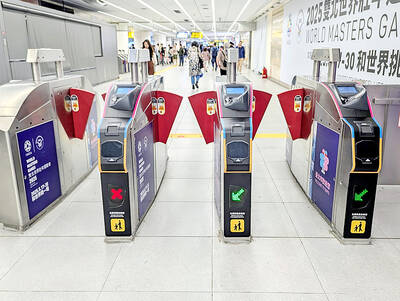There is no distinction between doves and hawks in Beijing’s dealings with Taiwan, Mainland Affairs Council (MAC) Minister Katharine Chang (張小月) said yesterday, after a lawmaker asked whether a recent leadership change at major Chinese think tanks dealing with Taiwan indicates a transition from dovish tactics to more hawkish ones.
Speaking at a question-and-answer session at the legislature, Democratic Progressive Party Legislator Chiu Chih-wei (邱志偉) said that China’s National Society of Taiwan Studies and the Institute of Taiwan Studies of the Chinese Academy of Social Sciences recently had new heads appointed to lead the organizations.
“The new heads are different from their predecessors, who were academics or experts who have studied Taiwan’s economic, social and cultural affairs for a long time,” Chiu said.
Dai Bingguo (戴秉國), the new chairman of the National Society of Taiwan Studies, “is a veteran diplomat specializing in Soviet Union and Eastern European issues, and is a former Chinese deputy minister of foreign affairs, a former director of the International Department of the Chinese Communist Party’s [CCP] Central Committee and a former director of the National Security Leadership Group of the CCP Central Committee,” Chiu said, adding that Dai’s previous positions has no direct connections to cross-strait relations.
Yang Mingjie (楊明杰), the new chairman of the Institute of Taiwan Studies “is a counter-terrorism expert specializing in Asia-Pacific security and US-China relations,” Chiu added.
Chiu said he feels that the selection of people with foreign and security backgrounds over “dovish academics who have studied and frequently made exchanges with Taiwan signifies a shift to a more hawkish stance.”
Chang said the Beijing team that deals with Taiwan operates at a central level and consists of many members, including those from the Taiwan Affairs Office, the Chinese Ministry of Foreign Affairs, the military and national security agencies.
“China places its Taiwan policy on the same level as its relationship with the US,” Chang said.
Chiu said the think tanks could affect Beijing’s policies toward Taiwan and that the two institutions have never before been headed by people with foreign and national security backgrounds.
“This should give us an indication on how to adjust our strategy,” he said.

A magnitude 6.4 earthquake struck off the coast of Hualien County in eastern Taiwan at 7pm yesterday, the Central Weather Administration (CWA) said. The epicenter of the temblor was at sea, about 69.9km south of Hualien County Hall, at a depth of 30.9km, it said. There were no immediate reports of damage resulting from the quake. The earthquake’s intensity, which gauges the actual effect of a temblor, was highest in Taitung County’s Changbin Township (長濱), where it measured 5 on Taiwan’s seven-tier intensity scale. The quake also measured an intensity of 4 in Hualien, Nantou, Chiayi, Yunlin, Changhua and Miaoli counties, as well as

Credit departments of farmers’ and fishers’ associations blocked a total of more than NT$180 million (US$6.01 million) from being lost to scams last year, National Police Agency (NPA) data showed. The Agricultural Finance Agency (AFA) said last week that staff of farmers’ and fishers’ associations’ credit departments are required to implement fraud prevention measures when they serve clients at the counter. They would ask clients about personal financial management activities whenever they suspect there might be a fraud situation, and would immediately report the incident to local authorities, which would send police officers to the site to help, it said. NPA data showed

ENERGY RESILIENCE: Although Alaska is open for investments, Taiwan is sourcing its gas from the Middle East, and the sea routes carry risks, Ho Cheng-hui said US government officials’ high-profile reception of a Taiwanese representative at the Alaska Sustainable Energy Conference indicated the emergence of an Indo-Pacific energy resilience alliance, an academic said. Presidential Office Secretary-General Pan Men-an (潘孟安) attended the conference in Alaska on Thursday last week at the invitation of the US government. Pan visited oil and gas facilities with senior US officials, including US Secretary of the Interior Doug Burgum, US Secretary of Energy Chris Wright, Alaska Governor Mike Dunleavy and US Senator Daniel Sullivan. Pan attending the conference on behalf of President William Lai (賴清德) shows a significant elevation in diplomatic representation,

The Taipei MRT is to begin accepting mobile payment services in the fall, Taipei Rapid Transit Corp said on Saturday. When the company finishes the installation of new payment units at ticketing gates in October, MRT passengers can use credit cards, Apple Pay, Google Pay and Samsung Pay, the operator said. In addition, the MRT would also provide QR payment codes — which would be compatible with Line Pay, Jkopay, iPass Money, PXPay Plus, EasyWallet, iCash Pay, Taiwan Pay and Taishin Pay — to access the railway system. Currently, passengers can access the Taipei MRT by buying a single-journey token or using EasyCard,